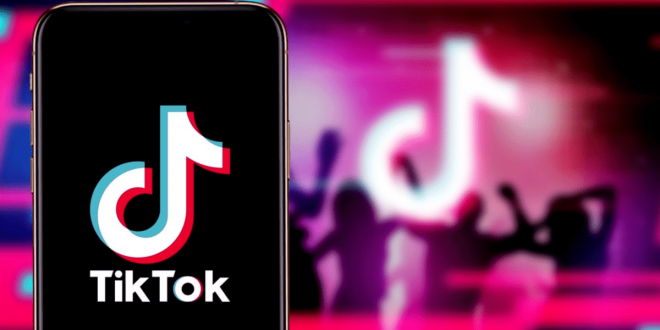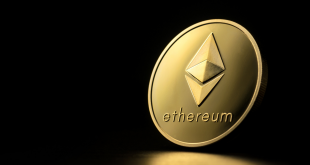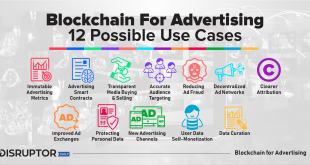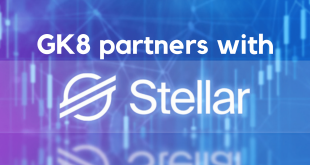Blockchain-based music streaming platform Audius has joined forces with the social media app TikTok, becoming the first service in an exclusive partnership. Music income goes to the artists in the form of a small cut. Audius hopes to change this. The U.S. music industry is expected to generate $23 billion in gross music income by 2020, with musicians earning just 12% of revenue. Artists will receive direct payments when Audius streams songs. The functionalities are currently not available. Audius must first prevent people from making money from pirated music, according to a Reddit commentator.
TikTok appears to be a perfect platform for young music content creators to showcase their work and promote their brand. The algorithm at TikTok is designed so that each video has a chance of going viral, and an account’s following is not taken into account when the algorithm makes recommendations for users.
Users’ “For You Page” can feature lesser-known artists if they view similar content, and the more videos are considered, the more likely they will spread. Additionally, its ease of creating and uploading content and streaming speed is not like other social media services. Lil Nas X is one of the many artists who have become famous through TikTok’s algorithm. Adding music to videos on TikTok can be challenging for music artists.
It is challenging to add new music to the app in the current system, especially for teenagers who lack technical knowledge and want to share their songs. TikTok users will be able to export their songs directly from the Audio streaming service to TikTok, thanks to the partnership. Audios are also exploring how it can help artists with enormous followings monetize their content more efficiently. Despite being launched in 2018, Audius has only seen significant growth this year. Active users in January numbered slightly fewer than one million.
Five million people had joined by August. On Audius, over 100,000 artists are displaying their music, many of whom are unknown to the mainstream audiences; however, it is possible to find a few “tastes” of some big-label acts. Even though the feature is centered around crypto technology, Audius’ CEO says only around 95% of users would be aware of the blockchain component. Although the technology is vital to Audius’ ethos of enabling artists to distribute directly to fans, not through intermediaries, Audius believes that its technology is just as significant to the philosophy of empowering artists.
Audius’ revenues are still relatively small compared with Spotify’s estimated $9.5 billion. As a result of the partnership, TikTok, which is not a part of it, will have access to half a billion users for the first time. TikTok’s distribution and compensation strategies play a crucial role in determining how it will monetize. In the meantime, Ant Group operates a music copyright protection initiative. Previously, Sony Music raised $30 million to fund the NFT marketplace MakersPlace, supported by South Korea’s CJ Group.
Streaming music platform Audius will manage TikTok’s extensive internal audio library, TikTok announced on August 17. A partnership with the giant of short videos was not a natural choice for Audius. Streaming services, for example, Apple Music and Spotify, are not competitive with the service with this feature. With Audius, you get the first and only streaming platform that works with blockchain.
The blockchain: what is it?
You have likely heard the term “blockchain,” which holds the record for the Bitcoin network, if you have been following banking, investing, or cryptocurrency during the last ten years. Blockchains are methods of storing and moving data records without a central authority.
Identical “blocks” of transaction data are stored on these systems, which are sequentially linked by timestamps and unique identifiers to form “chains.” Music is encoded with unique codes, and when a song is played, crisp records are stored. Furthermore, it can streamline and make payments more transparent. “Pro-rata” models are used by streaming platforms such as Spotify and Apple Music to pay artists. Based on how many times their music was played, artists receive a portion of the overall monthly revenue generated by the platform from ads and subscription fees.
In the opinion of independent artists and analysts, the pro-rata revenue distribution system produces “superstar economies” in which the most famous musicians receive the most money per month. The Audius blockchain system allows users to stream music directly from artists, which results in artists receiving revenue. This means that artists receive their payments directly from the people who stream their music. Despite the intransigence of the most prominent streaming players, Deezer has taken the first steps towards a payment model that is geared toward the user. TikTok will follow soon.
Main Takeaways
- Databases are different from blockchains.
- Blockchains store information differently from a typical database; blocks are chained together to store data.
- A new block of data is created every time new data arrives. The block is chained onto the next once it has been filled with data from the previous block, so chronologically, it remains chained together.
- The blockchain can store a wide range of information, but it has been chiefly used for transactions so far.
- The blockchain is used in Bitcoin to control all users, not just a few or a few groups.
- The data entered into decentralized blockchains cannot be changed, so they are irreversible. Transactions in Bitcoin are recorded permanently and are viewable by anyone.
Despite its complexity, blockchain is a straightforward concept at its core. Blockchains are types of databases. To understand blockchain technology, one must first understand a database. On a computer system, a database stores information electronically. For easier searching and filtering, data is typically organized in table format in databases. When storing information, how is a spreadsheet different from a database? A spreadsheet is a tool designed for storing limited amounts of information on one or more computers.
Databases, as opposed to spreadsheets, are intended to gather, filter, and modify enormous volumes of data rapidly and easily by any number of users at the same time. Databases that house a lot of data do so by using powerful computers that act as servers. Many computers can provide simultaneous access to a database so that thousands of users can access it simultaneously. Spreadsheets and databases may be accessible to anyone. Still, the spreadsheet or database is often the property of a business, and its data is managed by an employee who has complete control over how it works.
Are you familiar with TikTok?
With over 900 million monthly active users, TikTok is the most prominent short video platform globally and a significant influencer in the global music industry. TikTok allows you to use songs as the background of short videos, which can go viral. For now, the only way to access independent music on TikTok is through publishing or companies, such as CD Baby or TuneCore, that take a cut or charge fees.
Musicians can now upload to TikTok directly using Audius. In light of TikTok’s centrality to music and its propensity for failing to credit artists appropriately, this would be a welcome development for musical artists. According to new research, blockchain-based book publishing systems may improve intellectual property tracking and increase royalties paid to independent authors. TikTok musicians may have the same difficulties, but expectations ought to be moderate, given the history of overstated claims and unfulfilled promises.
Is this a more equitable payment system?
While TikTok hasn’t said, to date, whether Audius’ blockchain technology will be used in its user-centric revenue model, it makes sense for the company to pay royalties per play of videos. Money is the form of payment artists receive from platforms like Spotify. As an alternative, Audius has developed its cryptocurrency called $AUDIO and uses it to perform blockchain transactions. In cryptocurrency, public ledgers are used to store digital currencies instead of banks, used for blockchain-based transactions.
According to Audius’ co-founder, most users are unaware of or uninterested in the crypto underneath its platform. However, the price of $AUDIO spiked on the markets after its announcement. In light of the cryptocurrency market’s volatility, artists who received payments in $AUDIO might not know whether they were being compensated fairly. Market speculation will determine how much income artists make from their music and how often they are listened to.
Why does this matter for artists?
Digital currencies are subject to less-tight regulation, unpredictable value fluctuations, and environmental costs associated with mining and maintaining cryptocurrency. Using digital currencies that might not be as strictly regulated may cause artists to be cautious. Users-centric models do not come without their flaws, however. Digital platforms, record labels, and music publishers must work together for the model to be thoroughly tested.
Otherwise, artists using different services would face fundamentally unequal conditions. TikTok isn’t investing solely in blockchain technology. With the launch of TikTok partnerships in June 2020, significant labels became part of the service. TikTok and Indie consortia have plans to offer exclusive premium services for European artists through partnerships with Spotify and TikTok. As TikTok seems to be demonstrating, after years of sensational claims and unfulfilled promises, how such a future might look for artists using the app every day.
Introducing TikTok’s new partnership
A blockchain-based music streaming platform called Audius has partnered with the company. On August 17th, they announced this collaboration, bringing a blockchain + big company to a close. But how does this impact creators? What impact will it have on TikTok? For starters, it provides a much more effective mechanism than Spotify and Apple Music’s payment systems to get paid. Musicians are paid based on revenue and the number of times a song/track has been played. Due to this, the top creators receive the majority of the money.
Suppose a blockchain-based payment model is implemented. You can generate revenue based on the number of times you play a song. Transparency and bias will be removed this way. It means that TikTok has a better chance of attracting creators to their platform if they manage to nail this partnership. The company is not leaving Apple Music or Spotify. TikTok will gain traction in the streaming music industry.
What’s wrong
Blockchain technology allows artists to receive their payments in a cryptocurrency called $AUDIO, part of the platform. However, not all artists accept such payments, so we have a problem. This is happening because most of them still do not comprehend crypto and cannot cope with the market’s unpredictable fluctuations. Furthermore, if an artist does not convert to fiat, they may not receive a payment that seems fair right now. There are some downsides and risks involved. Market reactions to this will have to be watched.
An example of a blockchain is storing information where changing, hacking, or cheating is difficult or impossible. Blockchain networks create digital ledgers that report transactions to the rest of the blockchain network.
Cryptocurrencies, among other things, depending on the technology of blockchain. Blockchain technology was invented for Bitcoin, the most popular cryptocurrency.
Hackers can still access blockchains. Decentralized blockchains are more resistant to hacking because of their decentralized nature. A hacker would have to take over more than half of the computers in a distributed ledger to alter it. That’s unlikely, but possible-more on that later.
Historically, blockchains have been criticized for the immutability of data. Alternatively, he will not remove the trace from a blockchain-based platform if he doesn’t want it.
 Next Tech Magazine Get The Latest Technology Updates
Next Tech Magazine Get The Latest Technology Updates







